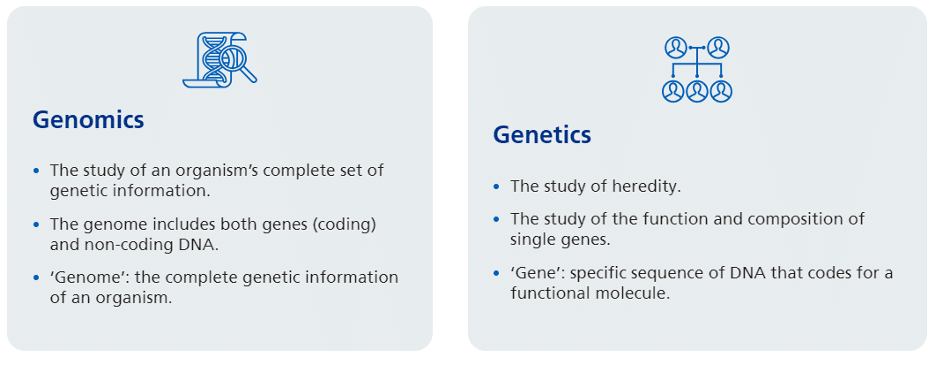What is genomics?
Put simply, genomics is the study of an organism’s genome.

Put simply, genomics is the study of an organism’s genome – its genetic material – and how that information is applied. All living things, from single-celled bacteria to multi-cellular plants, animals and humans, have a genome – and ours is made up of DNA.
Genetics and genomics both play a role in health and disease and while they sound similar there are small differences between the two.

What is genome sequencing?
Sequencing is a technique that is used to ‘read’ DNA. It finds the order of the letters of DNA (A, T, C and G), one by one, and therefore enables us to find the sequence of someone’s unique 3 billion letters of DNA (aka their genome).
By reading the letters of DNA, scientists can then spot and identify changes in a person’s genome. They can use these changes to help them understand why a person may be unwell or predict if they are at a higher risk of diease